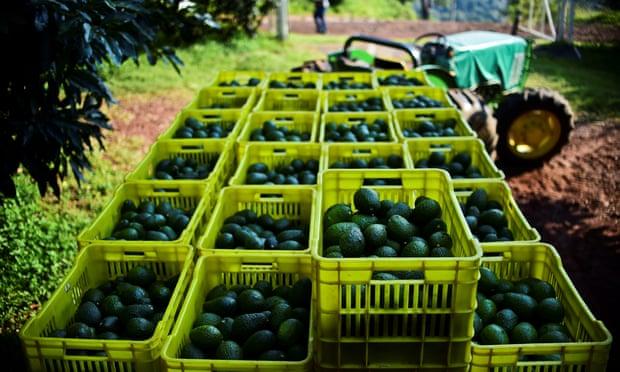Steve Barnard, president and chief executive of Mission Produce, the largest distributor of avocados, recently claimed that the United States will run out of avocados in three weeks if President Trump decides to close the US-Mexico border. This newsline has become the cause of concern for many; the public reaction, however, should be noticed, as it demonstrates the true nature of many Americans. Rather than being concerned about the human rights violations committed at the US-Mexico border by the US government, many Americans are taking notice of immigration and trade policy because it now directly impacts their consumption of the trendy instagram fruit: avocados.
Mexico is the source for roughly 90 percent of imported avocados in the United States. If imports were to cease, Americans would run out of avocados in three short weeks. This fact has created a national state of alarm — because where would we be without our daily avocado toasts, guacamole, trendy salads and smoothies? Media attention concerning the avocado’s fate has exploded, in many cases overshadowing the immigration crisis. Many have turned to memes, tweets and puns to cope with the news. This leads us to wonder about what the avocado scandal indicates about the United States’ values. Do we really care that much about this popular fruit or is it simply a tangible manifestation of a larger issue: the United States’ relation with its southern neighbor?
Far from trivializing a potential bilateral trade crisis, some experts say that the focus on the avocado is emphasizing the effect President Trump’s decision would have on Americans. Reinsch, who was previously president of the National Foreign Trade Council, commented: “It’s a handy shorthand way of illustrating how an abstract issue like international trade actually affects people’s lives day by day. … It allows people to more easily understand the interconnectedness of the global marketplace and demonstrates the benefits of globalization.”
A dwindling avocado supply is only one out of the many consequences this decision would have on Americans and Mexicans alike. Americans in all job sectors — whether that be manufacturing, farming or small businesses — would take a big hit, along with border residents and migrants, if this decision were to go through. This situation could quickly become as much of a humanitarian issue as it is currently an economic one; behind all the trade issues, there are actual people who will be affected. Northern Mexican cities that depend on trade with the United States would be devastated by any extended border closing, leading to mass unemployment that could actually create more attempts to cross the United States border. Under United States law, asylum seekers can request protections once they reach American soil — meaning the closing could actually encourage more desperate flights across the border. If anything, these new decisions concerning the border will only promote more poverty in Mexico, which would then turn into more pressure on immigration in the U.S.
It is unfortunate that something as trivial as the avocado is the catalyst for American discourse regarding the US-Mexico border. With that being said, all Americans need to understand the severity of the border crisis and the problems surrounding it — and, maybe in the meantime, choose a different spread for trendy toast.




